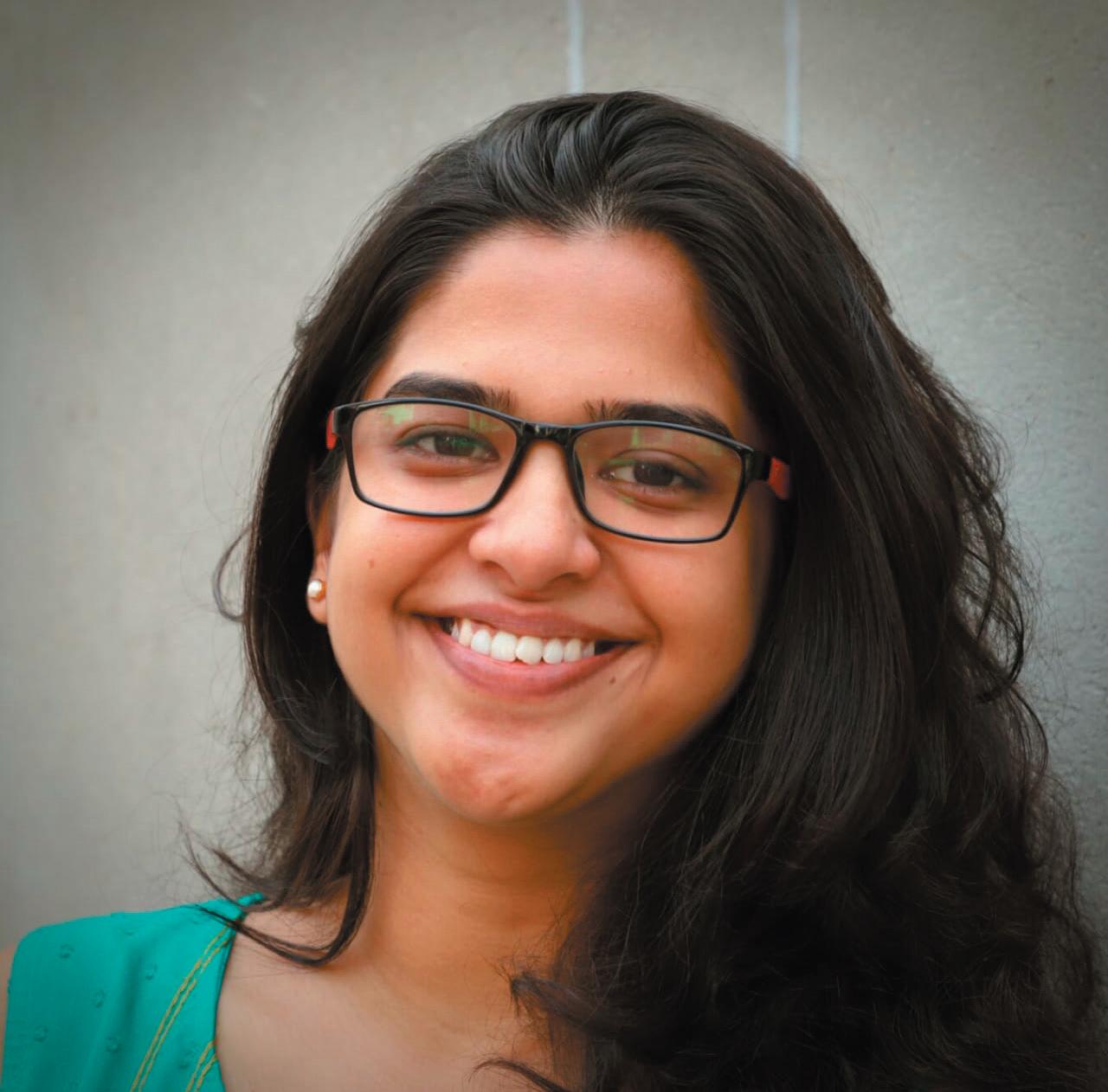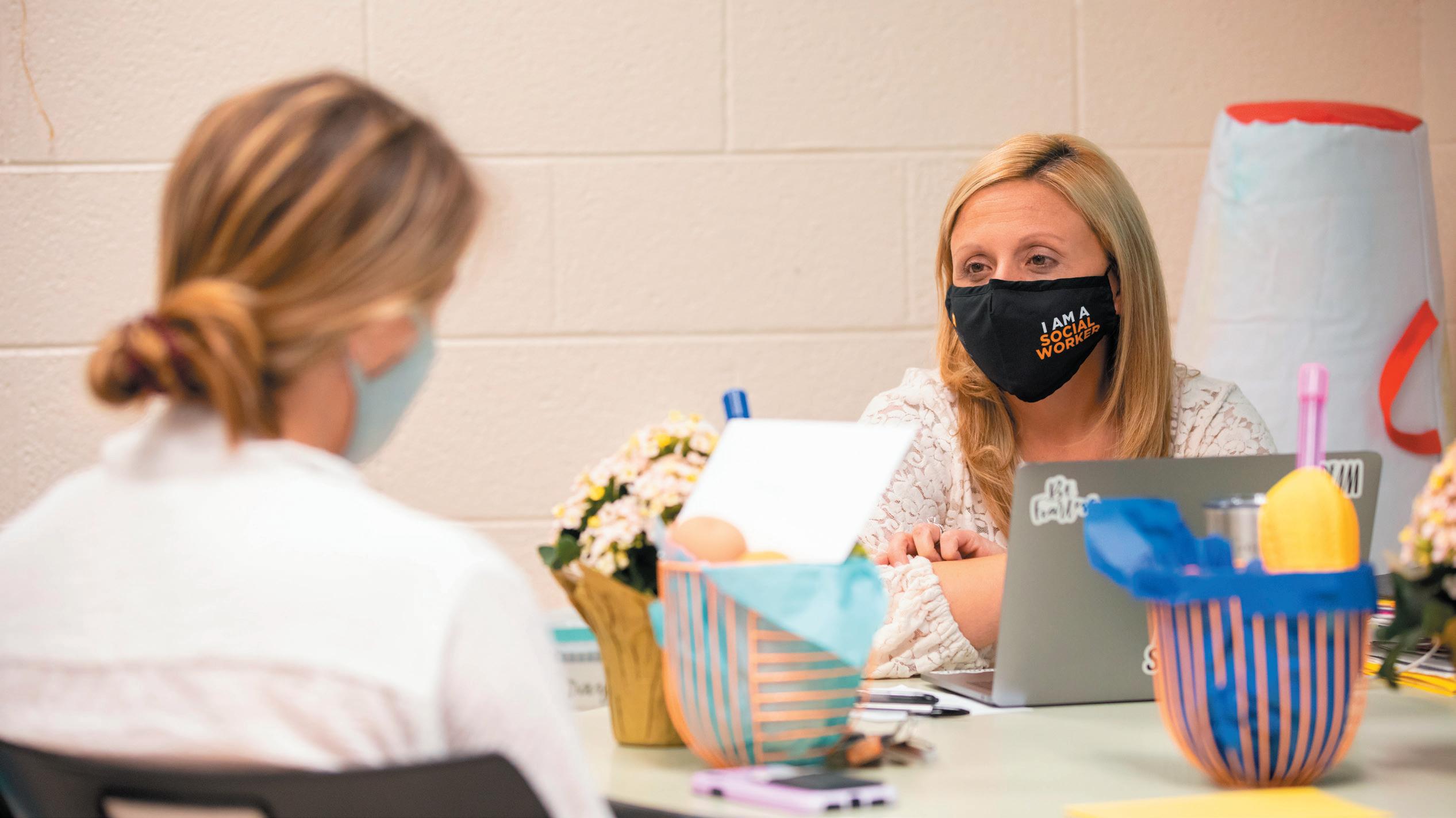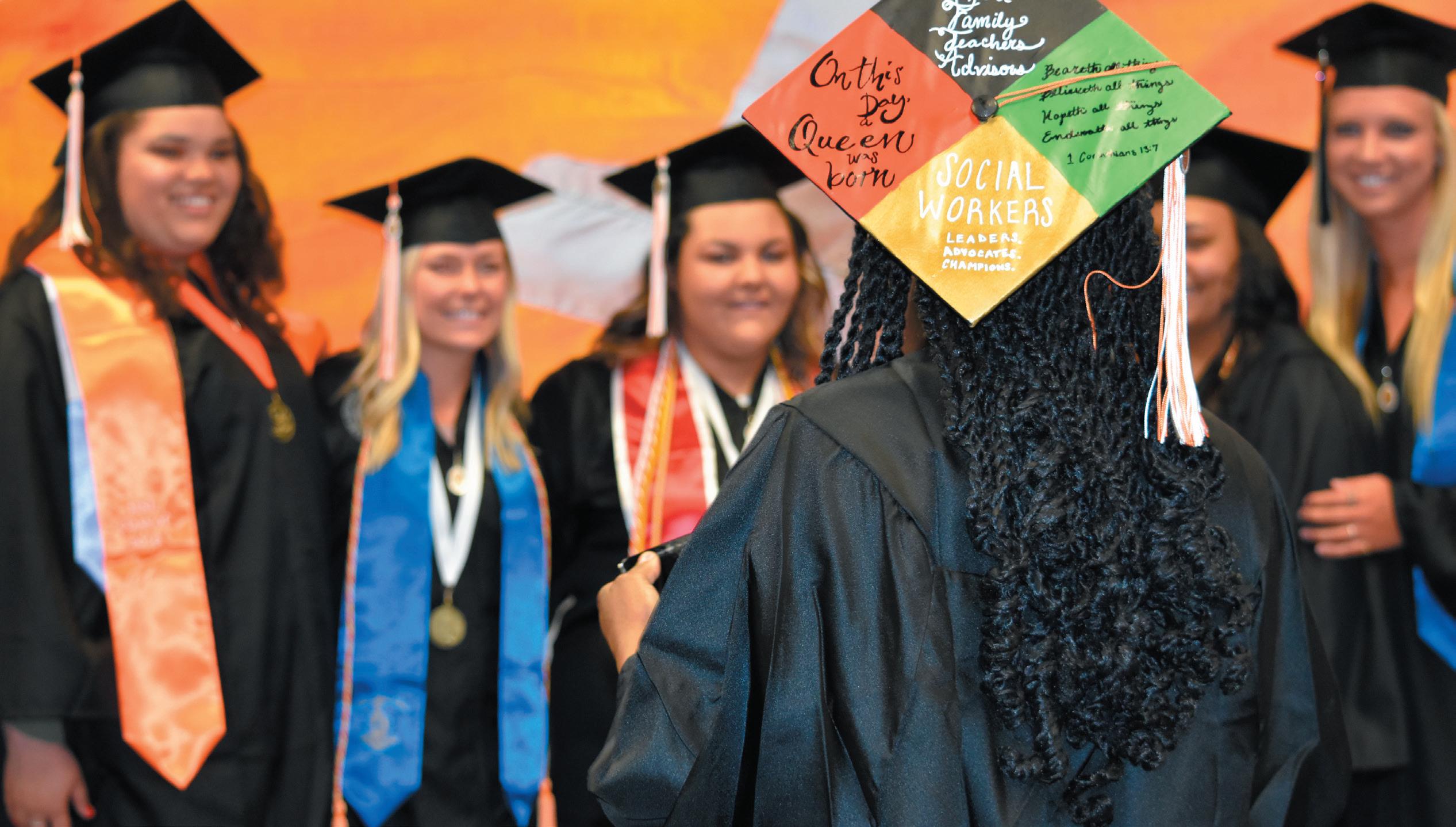
5 minute read
Student Highlights
Tyesha Butler, Nashville MSSW and GRA student, was recently selected for the 2021 CSWE Masters’ Minority Fellowship program (MFP). The Master’s MFP is a program designed to enhance the training of full-time, master’s-level, direct practice-focused social work students in their final year of study at a CSWE-accredited institution.
As a fellow, Butler plans to work with the African American community to help dispel the stigma of going to therapy and shape how mental health is viewed. “While in graduate school, I first chose field placements where I could be intentional about serving marginalized groups,” she explained. “During my first placement I worked at Raphah Institute, which is a restorative justice diversion program, where I served youth impacted by the justice system. The restorative justice work done here provides an opportunity to, ‘confront the root causes of societal harm, take a uniquely crafted approach, and see transformative healing for all.’ I helped youth reimagine a better future for themselves through home visits when youth were in crisis and circle facilitation. Currently, I am interning at a charter school and learning a lot about the needs of youth in an academic setting. Working in the school system I get the opportunity to meet students at all of their intersections and am able to address specific relational, emotional, and academic needs that young people face.” As she looks toward graduation this spring, Butler is looking for opportunities to work where she can continue to serve communities that look like her. “At the end of my fellowship I hope to have gained a better understanding of what it means to work towards cultural humility, so much so that it is a framework of practice,” she said. “I also am eager to be on the contributing end of aiding in reducing mental health disparities in racial and ethnic populations through accessible therapy and other mental health services. I have already gained so much knowledge from staff, faculty and community members that support this fellowship, that I know I will be gleaning from their wisdom for many years to come.”
Advertisement
NAMRATA MUKHERJEE

Namrata Mukherjee is a first-year PhD student in the Fall 2021 cohort. Not only was she new to the University of Tennessee, Mukherjee was also new to the United States.
“This is my first time in USA, and I am thrilled to be here,” she said. “The curriculum encompasses a perfect amalgamation of critical thinking and sharpening observation skills. The college is extremely welcoming to foreign students and the processes are easy to understand even though you are an alien to the system. The recreational center at the University is my stress reliever at the moment.”
Continuing her education was something Mukherjee had wanted to do for a while. “I hold a Master’s in Social Work from India and it was important to get a firsthand exposure to how research is conducted in a developed economy like the USA to be able to better understand and implement solutions to social issues back in my country,” she explained. “I would like to see myself contribute to the field of academic writing and pursue further research after I graduate. I am very appreciative that the college is trying to provide the best possible exposure and accessibility to faculty, staff, and study materials even in times of this pandemic. I am excited and thankful to be a part of this college and community.” Marie Holzer and her cohort recently coordinated ongoing efforts to help the victims who were devastated by the deadly Nashville tornados that blew through the city last spring. Holzer, Rachel Inman, and the rest of the cohort could not sit idly by and do nothing and knew that they needed to help in some way.
“There was a stirring feeling within my cohort,” Holzer said. “Once we established that everyone was safe & secure, we all wanted to do something to help those who weren’t. We had just spent the past semester and a half learning about the social work values and principles and here came an opportunity to put what we have been learning into practice. Everything else that was requiring our attention as graduate students seemed insignificant after seeing the damage and destruction that rocked the emotional, physical, and financial security of so many of our neighbors.”
Once they found out the specific needs, the students all came together throughout the semester and delivered food, water, toiletries, comfort items, and many other essential items to neighbors in North Nashville that experienced the most damage. “In addition to delivering items, we also cleaned up and tried our best to organize the chaotic mess the tornado made,” Holzer explained. “I actually learned how to wield a chainsaw to cut up some of the massive limbs that had fallen. It was incredibly empowering to see everyone come together and do what they could, and to learn what they could in order to help. I have never seen such destruction in my life. It was a humbling reminder that no one is immune to fragility and the force of Mother Nature. It catalyzed me thinking of social work’s role in natural disasters, ecological destruction, and how to best serve those who are most vulnerable to these horrible events.”
As for what she wants to do after graduation, Holzer has several ideas in mind. “I flirt with a lot of ideas about what I want to do once I graduate, which is why an MSSW is so awesome,” Holzer stated. “It opens the door to so many opportunities. I would love to continue working with a food justice organization, the United Nations, or any other organization that strategically challenges the status quo. All I know is I will definitely continue learning and unlearning!”

— Namrata Mukherjee




Top left: UT students enjoy a nice day on campus; Top right: School social worker talks with student; Bottom left: BSSW student Katherine Crye outside her field placement at The Compassion Coalition; Bottom right: UTCSW students at graduation







